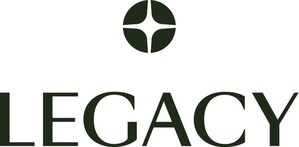Report Chronicles How Various Pacific Islander Groups Work Together, Share Resources to Combat Tobacco Use
WASHINGTON, Sept. 25, 2012 /PRNewswire-USNewswire/ -- A new monograph from Legacy® and the Pacific Partnership for Tobacco Free Islands (PPFTI) puts a spotlight on the issue of tobacco use in the U.S. Associated Pacific Islands (USAPI), presenting both challenges and solutions. The report, titled Pacific Partnership for Tobacco Free Islands: Weaving Together Our Resources and Cultures to Address Tobacco Use, addresses the unique challenges that are faced within the jurisdictions while offering lessons learned from tobacco control efforts.
(Logo: http://photos.prnewswire.com/prnh/20101101/DC86294LOGO)
While there is little national prevalence data on tobacco use in the USAPI, smoking rates appear to be high in many of the islands. Nearly all health indicators for Pacific Islanders living in the USAPI are worse than those in the United States, particularly in the freely associated states. Public health practitioners working in this community also face specific challenges, including:
- Interactions between USAPI and the continental tobacco control movements are limited, due to the distance from the continental United States and difference in time zones
- Distances between Pacific Island jurisdictions make synergy and communications more difficult
- In some cases, policies set by faith-based leaders are more effective than governmental policies, in terms of acceptance and adherence by community members
Legacy created this publication in collaboration with the PPFTI to promote enhanced knowledge and awareness among tobacco control experts and practitioners in the United States about the unique cultural and socioeconomic aspects of tobacco control in various USAPI jurisdictions. The monograph highlights successes, challenges and lessons learned from the tobacco control efforts in USAPI.
"Over the last few years, the USAPI has made great strides toward strengthening individual and collective efforts in tobacco prevention and cessation on the islands – the release of this monograph is the illustration of that work," said Laura Hamasaka, Associate Vice President, Program Development and Priority Populations at Legacy. "Through our efforts to forge partnerships and start conversations about tobacco use within these communities, we hope to work with public health advocates to support comprehensive programs designed to decrease smoking rates and shift social norms around tobacco use, ultimately saving lives."
Legacy helped sponsor PPFTI's health gathering in 2008 in Hawaii, which was the first comprehensive meeting to bring together governmental tobacco control groups from all USAPI jurisdictions and stakeholders in the faith-based community, traditional leaders (Chiefs), women, and youth, as well as the Pacific Chronic Disease Coalition (PCDC). It gave the Pacific Islander community the chance to create a shared ownership of the tobacco control issue and identified ways in which jurisdictions could work together to tackle challenges they all faced. The gathering also helped to facilitate dialogue around culturally appropriate tobacco control programs in each region. Some of the intervention programs highlighted in the monograph include:
- In the Republic of the Marshall Islands (RMI) nearly 90 percent of all adult smokers begin while in their teens or earlier, and two-thirds become regular, daily smokers by the age of 18. With nearly 40 percent of RMI's population under the age of 14, it is expected that tobacco use among youth will likely have a disproportionate impact on the health status of the Marshallese as the population ages. RMI partnered with community- based substance abuse and prevention groups to target young people and host events for youth to encourage healthier lifestyles.
- Early intervention is particularly important in the Commonwealth of The Northern Mariana Islands (CNMI) because a 2005 World Health Organization study reported that nearly 25 percent of high school students smoked, 17.5 percent used smokeless tobacco and 63 percent used betel nut regularly. The betel nut is the seed of a fruit from a palm tree known as Areca tree. Betel nut chewing is prevalent in most jurisdictions of the USAPI, as well as in other parts of the Pacific and Asia; it is the fourth most commonly abused substance in the world after tobacco, alcohol, and caffeine. In an effort to encourage youth and families to have fun without tobacco, the tobacco program hosts community activities like "Kick Butts Day" and "Challenge Masters" to provide youth and families with a social outlet that does not involve tobacco or betel nut.
- In Guam, policy changes have made all the difference. Guam's comprehensive efforts have resulted in a statistically significant drop in smoking prevalence from 34 percent in 2003 to nearly 26 percent in 2010. The tobacco control coalition and its partners have worked hand in hand with prevention-minded political leaders and government agencies to initiate and pass key legislation including: a clean indoor-air bill, an Executive Order requiring that all government facilities and vehicles are tobacco-free, an increased tobacco tax, and a public law prohibiting the importation and sale of ingestible tobacco sticks, ingestible tobacco film strips, tobacco hard candies, nicotine lollipops, nicotine lip balm and nicotine water.
- As a result of the long-term advocacy effort of the Ministry of Health Tobacco Control and Prevention Program and The Coalition for a Tobacco-Free Palau (CTFP), last August Palau President Johnson Toribiong signed into law the first comprehensive tobacco control legislation in Palau. The new law bans smoking in places of employment and educational, sports, childcare, adult care and healthcare facilities. It also puts restrictions and limitations on the sale, purchase, and advertising of tobacco products.
- In American Samoa, a key component of the tobacco control program is its presence in local villages. As trusted voices of the community, chiefs as well as faith-based leaders, give the program legitimacy and encourage the participation of villagers in the health visits. Engaging in a village-focused model for outreach has enabled tobacco control program staff to provide more services and has benefited other partners in their efforts to have a dialogue about broader issues.
- Religion and spirituality play a significant role in the lives of Pacific Islanders. In the Federated States of Micronesia (FSM) churches are instrumental in the success of health initiatives and policies. The FSM Tobacco Program has trained faith-based leaders to use evidence-based cessation methods to counsel church members who are tobacco users. Church-sponsored events for the tobacco cessation program garner significant participation due to the influence of and support by faith-based champions.
The PPFTI monograph is just the beginning of a long journey toward reducing tobacco use in the USAPI. In order to meet these challenges, the USAPI identified other needs that can help accelerate tobacco prevention and cessation efforts in the region, including:
- Funding for jurisdictional level prevention and cessation programs, as well as comprehensive, regional initiatives
- Technical assistance and training
- Research, data collection and evaluation programs
- Stronger tobacco control policies
- Support from local leaders
- Increased numbers of Pacific Islanders pursuing degrees in public health and science-based research
Another gathering of the PPFTI will occur in 2013 to assess the progress of the USAPI and PPFTI and to discuss ways in which to improve in the future.
To learn more about the tobacco control efforts in the USAPI, download the full report.
Legacy helps people live longer, healthier lives by building a world where young people reject tobacco and anyone can quit. Legacy's proven-effective and nationally recognized public education programs include truth®, the national youth smoking prevention campaign that has been cited as contributing to significant declines in youth smoking; EX®, an innovative public health program designed to speak to smokers in their own language and change the way they approach quitting; and research initiatives exploring the causes, consequences and approaches to reducing tobacco use. Located in Washington, D.C., the foundation was created as a result of the November 1998 Master Settlement Agreement (MSA) reached between attorneys general from 46 states, five U.S. territories and the tobacco industry. To learn more about Legacy's life-saving programs, visit www.LegacyForHealth.org.
Follow us on Twitter @legacyforhealth and Facebook www.Facebook.com/Legacy.
SOURCE Legacy
WANT YOUR COMPANY'S NEWS FEATURED ON PRNEWSWIRE.COM?
Newsrooms &
Influencers
Digital Media
Outlets
Journalists
Opted In





Share this article